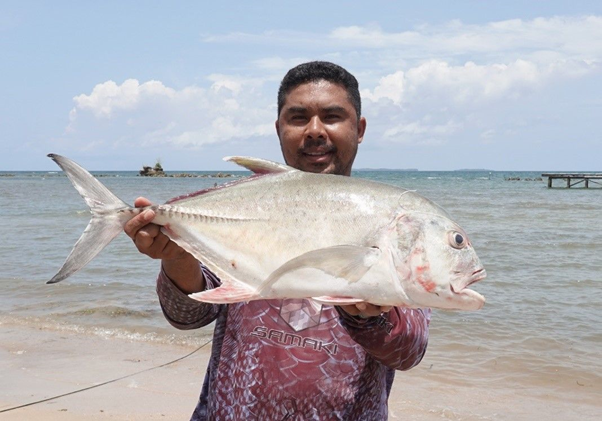Manokwari – Indonesian citizens, especially in island regions, often work as fishermen as their main livelihood and sustain their lives by catching fish, either for consumption or resale to markets with various prices and types. Fishermen in West Papua are increasingly being encouraged by local governments.
The Provincial Government (PEMPROV) of West Papua is inviting the local fishermen’s association to conduct a census regarding the number of fishermen in six regencies in the province. These six regencies are Manokwari, South Manokwari, Teluk Bintuni, Teluk Wondama, Kaimana, and Fakfak, excluding the Arfak Mountains region.
Through this association, the local government aims to coordinate and facilitate all fishermen in the aforementioned regencies. This was announced directly by the Executive Secretary of Papua Barat, Yacob S Fonataba. He emphasized that the census must be conducted accurately and efficiently so that it can serve as a reference for local governments in formulating empowerment programs for fishermen.
Meanwhile, the strategic partner of the local government is the West Papua Fishermen’s Association (ANPB), as this is done to understand the needs of fishermen, such as fishing gear and fuel when they are operating. To estimate this accurately, the census will be based on the number of fishermen who catch, fishermen who receive aid, and other fishermen who need equipment and facilities to work.
Yacob provided data on active fishermen, which is used as a reference for adding Fuel Supply Stations for Fishermen (SPBN) in each regency. This will make it easier for fishermen to obtain subsidized fuel, ensuring that fishing activities run smoothly and meet the needs of the community for fish products. Yacob added that the government will always facilitate and support any needs of fishermen.
The Head of the Fisheries and Maritime Affairs Department (DKP) of West Papua, Melkias Werinuassa, stated that the mapping of fishermen’s potential is coordinated with the local governments, ensuring that the data and distribution are accurate and in line with the target. This is done to avoid excessive spending by the government if the data does not match the field situation.
The data obtained is also very useful for local governments in implementing social assistance and fisheries resource development programs in a targeted and accurate manner. The government of West Papua will then submit a request for the addition of SPBN, as stated by Mekias Werinussa.


